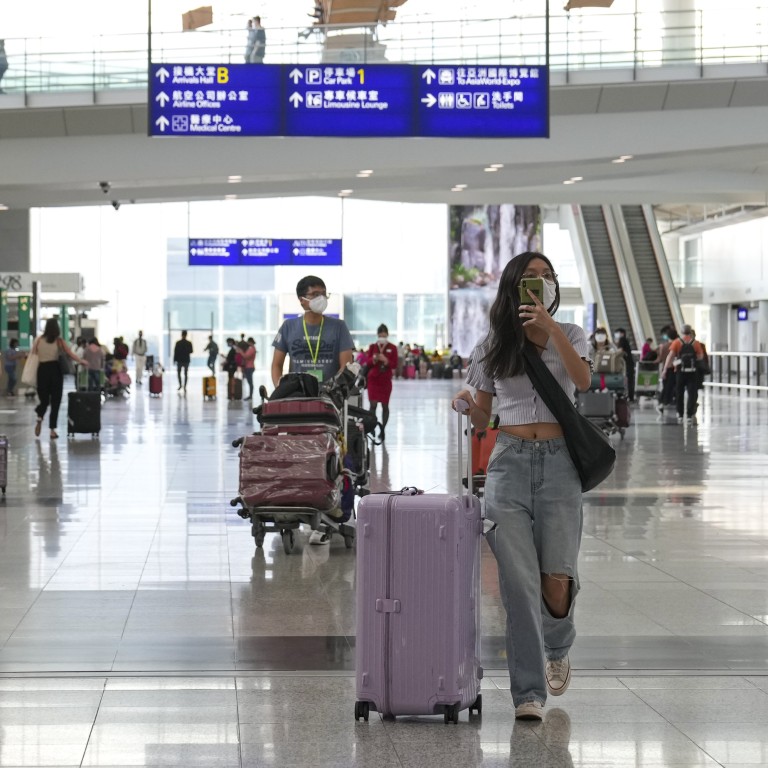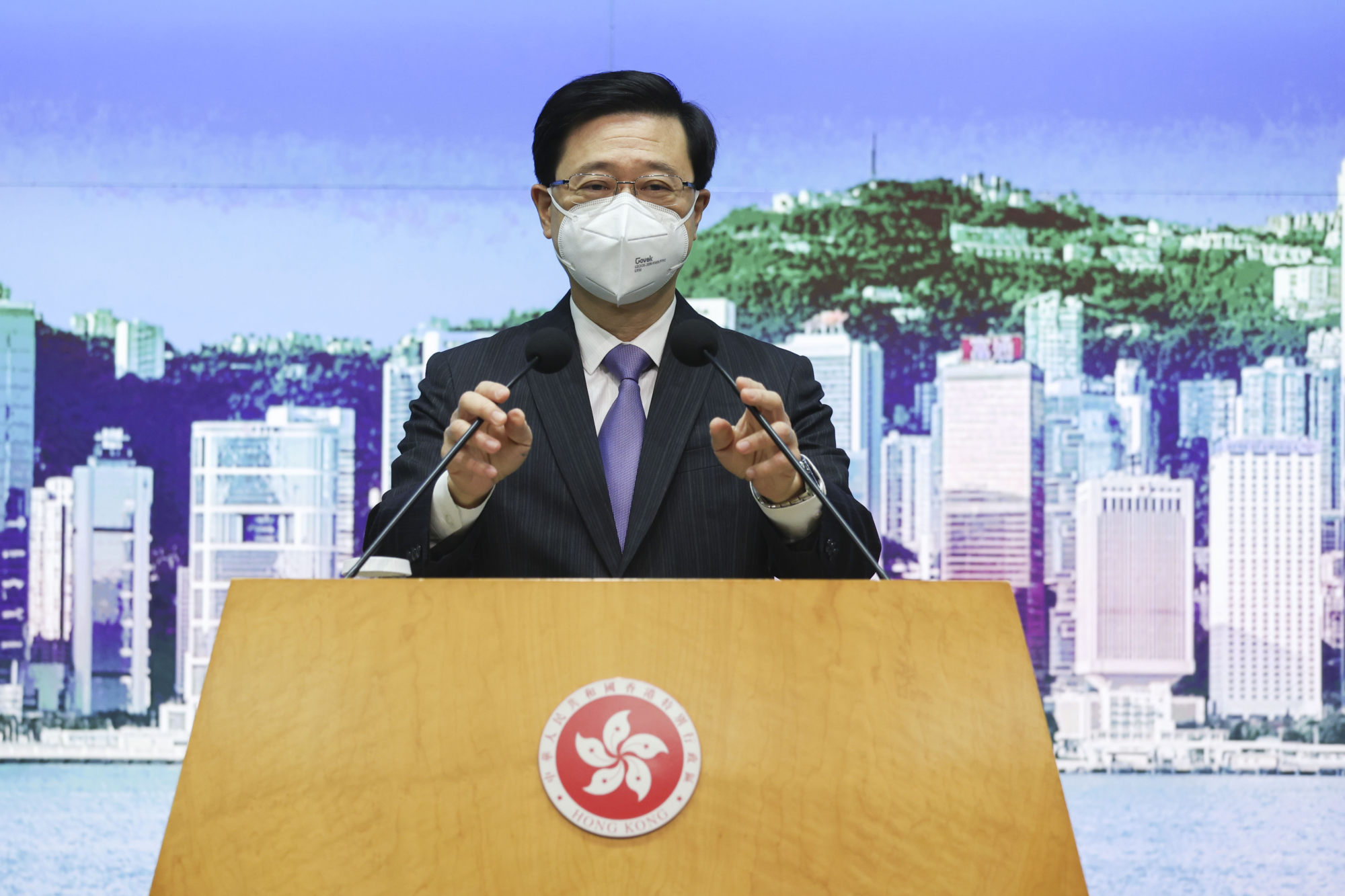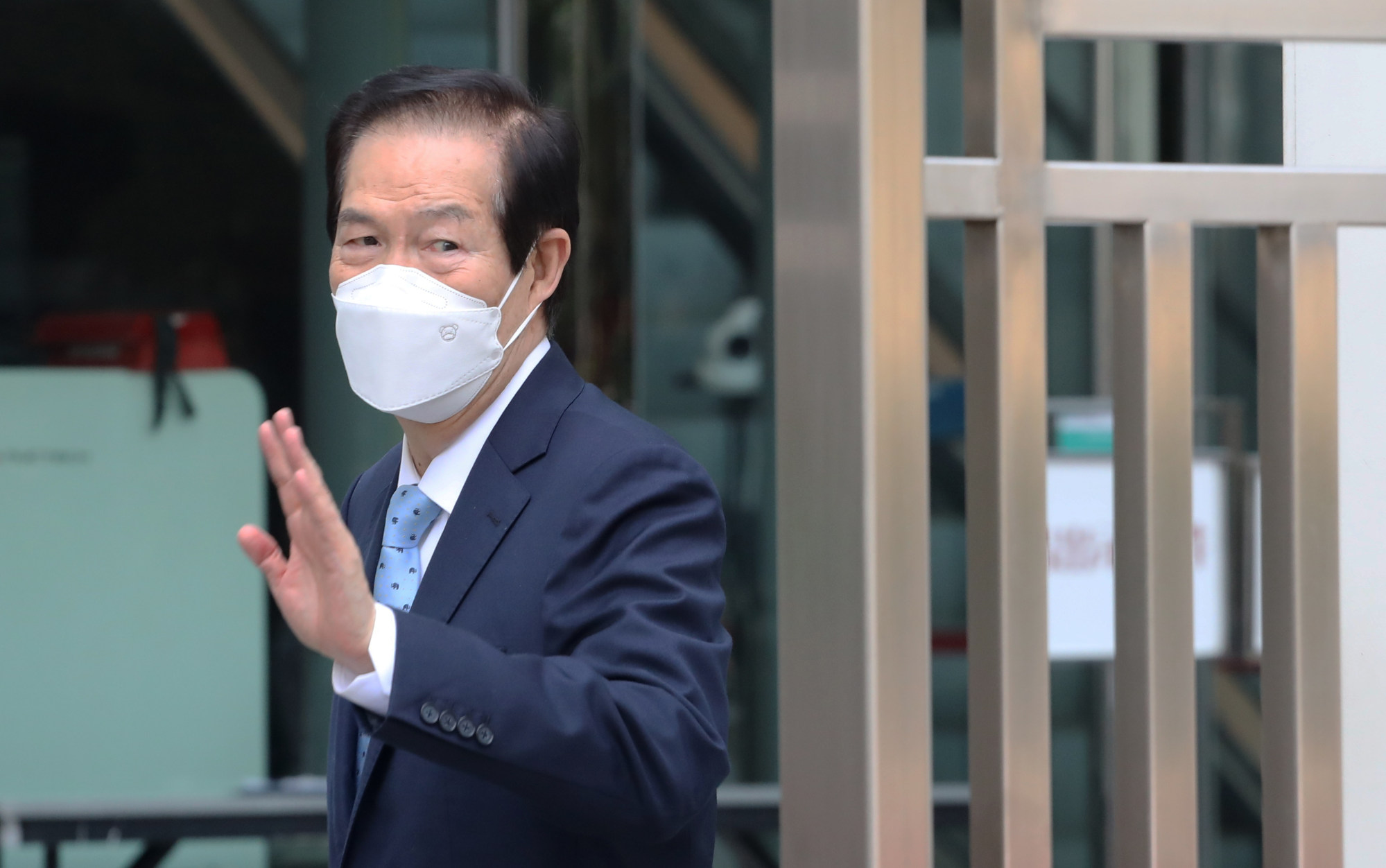
Coronavirus: don’t be fixated on ‘0+0’, Hong Kong’s John Lee says, while vowing to lift more pandemic curbs
- Chief executive says he will not describe ‘whether we are in a stage of ‘zero-plus-what’, amid pressure to end all travel restrictions and fully reopen city
- Pro-Beijing heavyweight writes in commentary ‘0+0’ not an option because of mainland China’s policy
Hong Kong’s leader has urged the city not to be fixated on a “0+0” Covid-19 arrangement which would end all restrictions for travellers, while reassuring the public he will lift more pandemic curbs even as caseloads rise in mainland China.
“Everyone has a different understanding of ‘0+0’. Therefore, I am not going to describe whether we are in [a stage] of ‘zero-plus-what’,” Chief Executive John Lee Ka-chiu said on Tuesday, referring to demands to lift the three-day medical surveillance mandate for all inbound travellers, under the current “0+3” policy.
Pro-Beijing politicians and businessmen said Lee’s change of narrative was an attempt to avoid sending a signal that Hong Kong was pursuing a “live with the virus” policy, with one lawmaker saying that the government is considering allowing some restaurants to admit arrivals with amber health codes to designated zones.
Lee tackled the question at his weekly press briefing on whether authorities would give up pursuing the lifting of all travel restrictions, with a reporter citing an article by pro-Beijing heavyweight politician Lo Man-tuen, who said Hong Kong’s latest relaxations were equivalent to a de facto “0+0” policy, but the city could not declare that because of the mainland’s “dynamic zero” policy.

In an opinion piece in Ming Pao published on Tuesday, Lo, vice-chairman of the All-China Federation of Returned Overseas Chinese, wrote: “This is to take into account the perception of the mainland, in a bid to [allow the city] to better integrate with the mainland’s entry arrangements and facilitate more Hongkongers to enter the mainland.”
Who wants to visit Hong Kong under ‘0+3’? Not many people, travel agents say
He added Hong Kong’s “0+3” arrangement, implemented in September to end hotel quarantine, but still ban arrivals from entry to restaurants, pubs and some other venues for three days, provided “an important reference” for the mainland, after there was no significant rebound following several mega events held in the city.
Lo, who cited “authoritative sources”, said he expected more “good news to come” because Beijing would need a more proactive approach to reopening to the world economically to live up to the spirits of the Communist Party’s 20th Congress last month.

Lee, speaking before the weekly meeting with the Executive Council, his key decision-making body, said authorities would formulate “targeted measures” for coming mega events and tour groups.
“Our policies have been simple and clear. We will minimise restrictions under the control of epidemic risks,” he said.
“The most important thing is we do not have a centralised quarantine mandate.
“We understand that there has been an increasing trend in the mainland’s [Covid-19] caseloads. We have the responsibility to ensure that we won’t add risks to the mainland’s epidemic control.”
Lee said, without giving details, that discussions with the mainland on a “reverse quarantine” scheme had continued to allow Hongkongers to undergo isolation at a temporary Covid-19 treatment centre before they crossed the border.
Hong Kong reported 5,951 new Covid-19 infections on Tuesday, including 520 imported cases. Thirteen more deaths were also confirmed.
Hong Kong travel sector appeals for more lenient coronavirus rules for tour groups
The number of coronavirus infections across China has hit a high since April 20, with authorities announcing that more than half of Guangzhou’s population would need to be tested for Covid-19.
The handling of the outbreak in the southern hub was seen by some as a test of the balance between control of virus spread and minimisation of social restrictions after Beijing’s announcement of 20 major relaxations of pandemic policy last week.
Allan Zeman, the chairman of leisure and entertainment giant the Lan Kwai Fong Group, said that Lee had shifted the government’s position to make sure Hong Kong’s Covid-19 policies were in line with the risk-based approach announced by Beijing in its 20-point plan.
“There is no point in continuing to talk about ‘0+0’. It’s more important to have targeted measures to make people’s lives better,” he told the Post.
Zeman predicted that the lifting of restaurant bans on arrivals would stay at the top of the government’s list as Hong Kong continued to open up, as statistics proved that businesses suffered under the “0+3” policy, which prompted more residents to spend overseas.
‘Better than nothing’ to cut cross-border quarantine between Hong Kong, mainland
Round table lawmaker Michael Tien Puk-sun said health authorities were considering a proposal he submitted to set up dedicated areas in designated restaurants for visitors subject to an amber health code.
He said the move could signal that tourists were still welcome to the city and epidemic risks could be controlled.
Tien added that he would no longer call for a “0+0” arrangement as he had registered the need for Hong Kong to align with national policies from Lee’s statement.
“Pursuing a ‘0+0’ scheme could imply that Hong Kong is going to live with the virus, which might cross China’s bottom line that the dynamic zero policy must be upheld,” he said.
Lau Siu-kai, vice-president of the Chinese Association of Hong Kong and Macau Studies, said he appreciated the merits of Lee’s decision to ditch the pursuit of a “0+0” policy.
He added it would allow flexibility for the city health authorities to adjust Covid-19 curbs without attracting blame from residents and Beijing.
“When you tighten them, the public won’t say it’s a U-turn. When you relax them, Beijing won’t say Hong Kong is lying flat,” Lau explained.
But respiratory expert Ho Pak-leung appealed to the government to cancel “unnecessary and ineffective administrative measures” as most of the city’s adult population had taken three doses of vaccine.
“Two months since 0+3 came into place, the government has been offering piecemeal adjustments every Thursday – that’s not opening up. The government should open up in one go, just like the mainland issuing 20 articles of adjustment,” Ho said.
The Hong Kong Jockey Club, in line with the government’s latest easing of social-distancing rules, said that race-goers, including amber code holders, would not be required to present their vaccine pass QR code for entry from Sunday.
But they will still need to scan the venue’s QR code with their LeaveHomeSafe mobile app and fulfil vaccination requirements under the vaccine pass scheme.
Spectators in the outdoor areas of racecourses will be allowed to eat and drink.
The beer garden and live entertainment between races at the Happy Valley racecourse will also restart from November 23.
Additional reporting by Jess Ma and Sammy Heung


